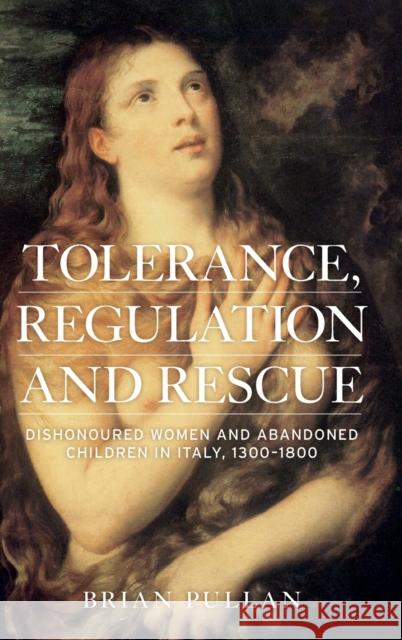Tolerance, Regulation and Rescue: Dishonoured Women and Abandoned Children in Italy, 1300-1800 » książka
Tolerance, Regulation and Rescue: Dishonoured Women and Abandoned Children in Italy, 1300-1800
ISBN-13: 9781784991296 / Angielski / Twarda / 2016 / 256 str.
Tolerance, Regulation and Rescue: Dishonoured Women and Abandoned Children in Italy, 1300-1800
ISBN-13: 9781784991296 / Angielski / Twarda / 2016 / 256 str.
(netto: 411,40 VAT: 5%)
Najniższa cena z 30 dni: 431,97
ok. 30 dni roboczych
Dostawa w 2026 r.
Darmowa dostawa!
Tolerance, regulation and rescue concerns the experiences of women and children living on the margins of mainstream society in the old Italian states. Both groups were deemed 'disreputable' - the women (including prostitutes and concubines) due to their being caught up in sexual relationships outside marriage, and the foundling children due to their illegitimacy, since many were born out of wedlock and 'cast out' by their blood parents, to be entrusted to institutions. By discussing their treatment at the hands of governments and of charities such as foundling hospitals, penitential convents and children's homes, this book makes a significant contribution to Italian social history and to the understanding of Catholic charity and social policy. Using a wide range of institutional and personal histories, Tolerance, regulation and rescue describes how, from the fourteenth century, Italian societies tried to regulate activities regarded as reprehensible but irrepressible and how they justified their decisions to accommodate them openly in cities. Could licensed prostitution and controlled, anonymous child abandonment be used to avert greater evils, from adultery and sodomy to infanticide and abortion? This study also shows how communities tried to atone for their moral compromises by rescuing some of their victims - by bringing prostitutes to repentance, protecting vulnerable girls and women in broken marriages, and raising foundlings to be useful members of society. The work deals with problems which are still the subjects of debate today. Eschewing technical language, it should appeal not only to academics and students of social and religious history, but also to the general reader.











